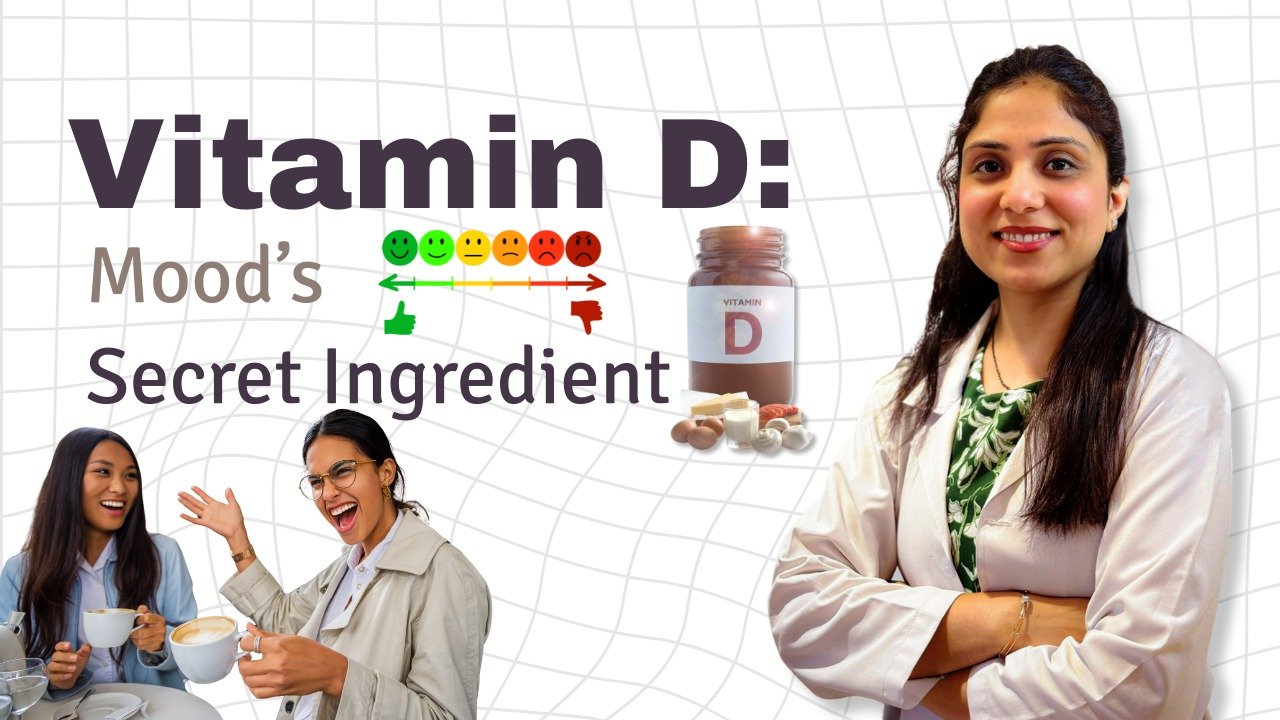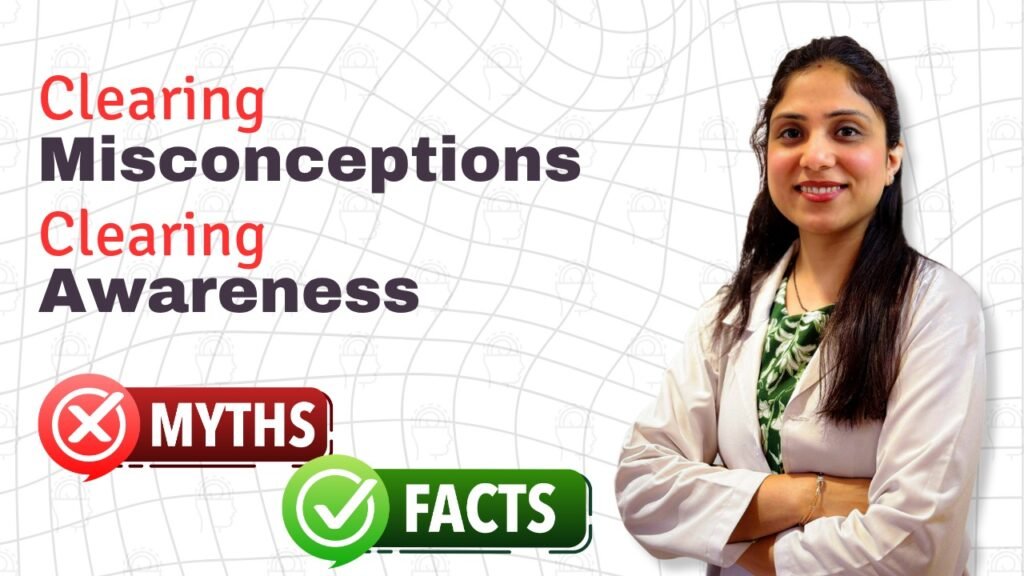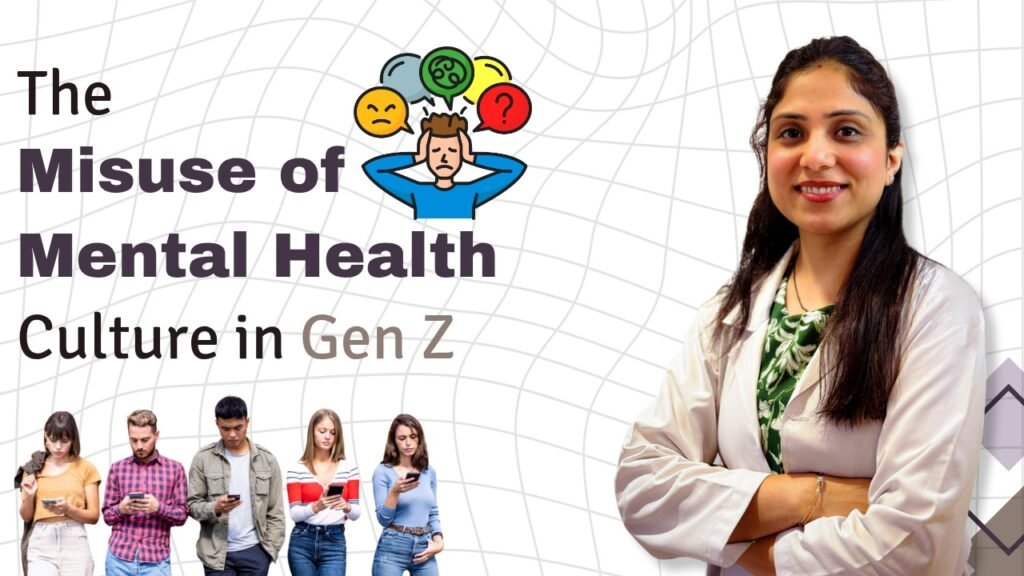
Written by Dr. Sakshi (MBBS, MD Psychiatry)
Sleep, exercise, therapy, and even diet all have an impact on mental health. Of all the nutrients, vitamin D is crucial for brain support. Often referred to as the “sunshine vitamin,” it must also be consumed through food in situations where sunlight is insufficient. Numerous physicians and psychiatrists have investigated the link between vitamin D-rich foods and mental health.
This blog will examine the connection between foods high in vitamin D and mental health. Additionally, you will learn about the sources of vitamin D in food, how diet can impact mood, and which foods high in vitamin D are essential for mental health.
Why Vitamin D Matters for Mental Health
Vitamin D supports healthy brain function. It helps the area of the brain that regulates emotions and mood. Anxiety, depression, and even memory issues have been connected to low vitamin D levels. As a result, physicians frequently request that patients with mental health disorders have their vitamin D levels checked.
Not everyone can get enough sunlight, despite it being the best source. Foods high in vitamin D must therefore be a part of every meal. The brain might not receive the necessary support without it. In fact, when combined with nutritional support such as vitamin D, mental health treatment often becomes more effective and balanced.
The Connection Between Vitamin D and Brain Chemicals
It has been demonstrated that vitamin D aids in the synthesis of serotonin, a mood-regulating neurotransmitter. Anxiety, fear, and sadness can all worsen when serotonin levels are low. Serotonin production can be naturally aided by consuming foods high in vitamin D.
Doctors now incorporate dietary recommendations into many mental health treatment plans. Vegetarian vitamin D foods are also being suggested for patients who abstain from eating fish or meat. In her consultations, Dr. Sakshi,best psychiatrists in Delhi, frequently highlights this connection.
Top 10 Vitamin D Foods for Mental Wellbeing
These ten vitamin D-rich foods are frequently recommended to enhance mental health:
- Fish high in fat, such as sardines and salmon
- Milk and dairy products that have been fortified
- Cereals fortified with nutrients
- Mushrooms, particularly those that have been sun-dried
- Cheese
- The yolks of eggs
- Fortified soy milk
- Fortified orange juice
- Oil from cod liver
- Tofu
You can support your body and mind by incorporating the top 10 foods that contain vitamin D into your meals. Many of these are readily available and can be used in basic dishes prepared at home.
Vitamin D Foods for Vegetarians: What to Choose
There might seem to be few options for people who eat only plants. Nonetheless, there are plenty of vegetarian vitamin D foods available. Cereals, tofu, mushrooms, and fortified plant-based milks are all excellent options.
Without requiring animal products, these vegetarian vitamin D foods naturally support brain health. To plan a healthy diet, it is also recommended to consult a nutritionist or a psychiatrist. Dr. Sakshi, the best psychiatrist, advises vegetarians and non-vegetarians to experiment with these foods.
Vitamin D Food Sources: Natural vs Fortified
Food sources of vitamin D come in two varieties: natural and fortified. Liver, egg yolks, and fatty fish are examples of natural sources. Vitamin D-enriched milk, cereals, juices, and plant-based substitutes are examples of fortified foods.
Both kinds of vitamin D-rich foods are beneficial, particularly in situations where sunlight is unavailable because of weather or lifestyle choices. Children, the elderly, and people with little exposure to the outdoors are frequently advised to eat foods fortified with nutrients.
Mental Health Benefits of Vitamin D Foods
Patients who eat more foods high in vitamin D have been observed to report feeling happier, having more energy, and showing fewer symptoms of depression. Vitamin D is an effective component of a comprehensive treatment plan, but it is not a cure for mental illness.
Among the advantages are:
- Improved stability of mood
- Reduced anxiety
- Better quality of sleep
- More lucid thought
- Decreased fogging of the brain
Although it might take a few weeks for these changes to manifest, the effort is worthwhile. Combining nutrition with therapy, professional assistance, and regular exercise is always recommended. Dr. Sakshi, the top mental health specialist, has observed better patient outcomes when therapy and food are combined.
How to Include Vitamin D Foods in Daily Life
Vitamin D-rich foods can be considered when planning daily meals to promote mental health. Orange juice as a snack, eggs for lunch, mushrooms for dinner, and fortified breakfast cereals with milk can all be beneficial.
Keeping a food journal and tracking mood swings are also helpful. Increasing their intake of foods high in vitamin D has helped many patients feel better, especially when paired with therapy sessions. You can also modify this to suit your needs with the help of the best psychiatrist in Delhi.
Conclusion: The Psychiatrist’s Advice
Emotional, physical, and nutritional care are all important aspects of mental health. Foods high in vitamin D have been demonstrated to improve mental function. They are a powerful aid in healing, but they are not a cure in and of themselves.
As one of Delhi’s best psychiatrists, Dr. Sakshi supports holistic healing. Check your vitamin D levels if you’re feeling depressed or nervous. Next, alter your diet with the guidance of the top mental health physician.
Remember the benefits of sunshine and healthy eating for a more contented, well-rounded life. Because sometimes your plate is where healing begins.
Book an appointment with me and let’s understand your journey—together.
📍 Dr. Sakshi
MBBS, MD (Psychiatry)
Fatty fish, egg yolks, mushrooms, fortified milk, and cereals have Vitamin D.
By including vitamin D rich foods like salmon, eggs, and fortified drinks in your daily meals.
Fatty fish, fortified orange juice, cod liver oil, and sun-exposed mushrooms are high in Vitamin D.
Many Vitamin D foods include both animal and plant-based items, such as cheese, tofu, soy milk, and eggs.


